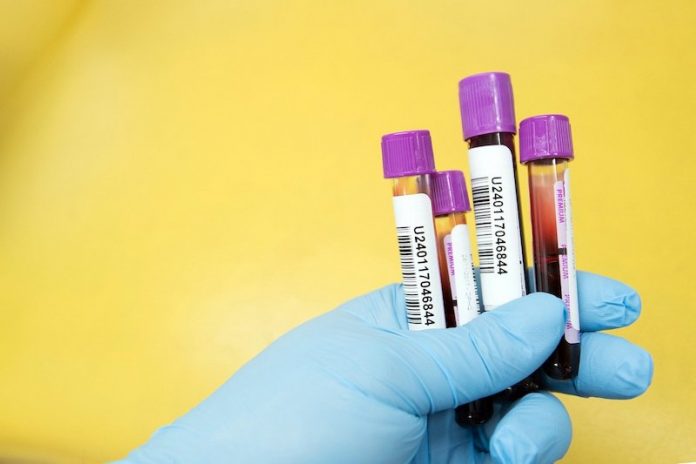
A new study from the University of Kentucky found replenishing the body’s high-density lipoprotein (HDL, ‘good’ cholesterol) could be an effective treatment for sepsis.
The team found that a synthetic form of HDL provided protection against sepsis.
The study is published in Science Signaling and was conducted by Xiangan Li et al.
Sepsis is a life-threatening condition that occurs when an infection triggers a chain reaction throughout the body.
Without timely treatment, it can quickly lead to tissue damage, organ failure, and death.
The Centers for Disease Control and Prevention reports that nearly 270,000 Americans die as a result of sepsis every year, and one in three patients who die in a hospital has sepsis.
HDL cholesterol is known as “good” cholesterol because it helps remove other forms of cholesterol from the bloodstream.
Higher levels of HDL are associated with a lower risk for heart disease and stroke, and according to data used in the study, better outcomes for septic patients.
In the study, the team found that septic patients have decreased HDL cholesterol levels compared to nonseptic patients. Additionally, lower levels of HDL correlated with a poorer prognosis for septic patients.
These findings suggest a decrease in HDL abundance is a risk factor for sepsis and that increasing HDL abundance may offer a viable therapeutic strategy against sepsis.
The team also treated septic mice with a synthetic HDL treatment called ETC-642 and those receiving it had increased survival rates and better protection against sepsis, including improved kidney function and reduced inflammation.
ETC-642 was previously developed to treat heart disease and has proven to be effective in increasing patient HDL levels in several clinical trials.
While additional studies are needed, ETC-642’s established clinical manufacturing and human safety make it an ideal candidate to move forward and test its protective ability in septic patients.
Related: how to control your cholesterol effectively to prevent heart attacks and strokes.
A previous study from British Pharmaceutical company AstraZeneca and published in Science Translational Medicine developed a new antibody drug that increases the level of ‘good’ cholesterol.
For many years, medical researchers have been touting the benefits of reducing so-called “bad” cholesterol in the bloodstream—such low-density lipoproteins (LDLs) are believed to lead to dangerous cardiovascular events when they build up in the bloodstream.
Many drugs have been developed to treat patients with high amounts of LDL.
At the same time, medical researchers have also been suggesting that so-called “good” cholesterol in the blood should be boosted.
In that study, the team developed a new drug that showed promise of overcoming problems seen with other efforts during initial testing.
The drug, currently called MEDI5884, was developed by the company as an experimental antibody drug—then testing showed it to reduce HDL-C in monkeys.
The researchers found that it neutralized endothelial lipase, which has been associated with coronary heart disease, and it did so by boosting HDL-C.
Experiments showed it could double the levels of HDL-C in monkeys in just two weeks, and it did not seem to have any negative effects.
Emboldened by their findings, the researchers tested the drug on a small group of human volunteers. They found that the drug also increased HDL-C levels in humans, though not as much as with the monkeys.
Unfortunately, they also found that the drug boosted the levels of bad cholesterol slightly, so they pretreated test monkeys with a PCSK9 inhibitor before giving them MEDI5884.
That seemed to do the trick—HDLC-C levels rose but LDL levels did not.
The researchers also found that combining the two drugs seemed to increase the efficacy of both.
They suggest that the combination of the two could lead to a means for controlling cholesterol in patients with heart problems.
If you care about cholesterol, please read studies that common cholesterol-lowering drugs may reduce death risk in severe COVID-19, and this drug may increase “good” cholesterol in your body.
For more information about cholesterol, please see recent studies about new therapy could cut “bad” cholesterol by half, and results showing common cholesterol-lowering drugs may help healthy older people live longer.
Copyright © 2022 Knowridge Science Report. All rights reserved.



